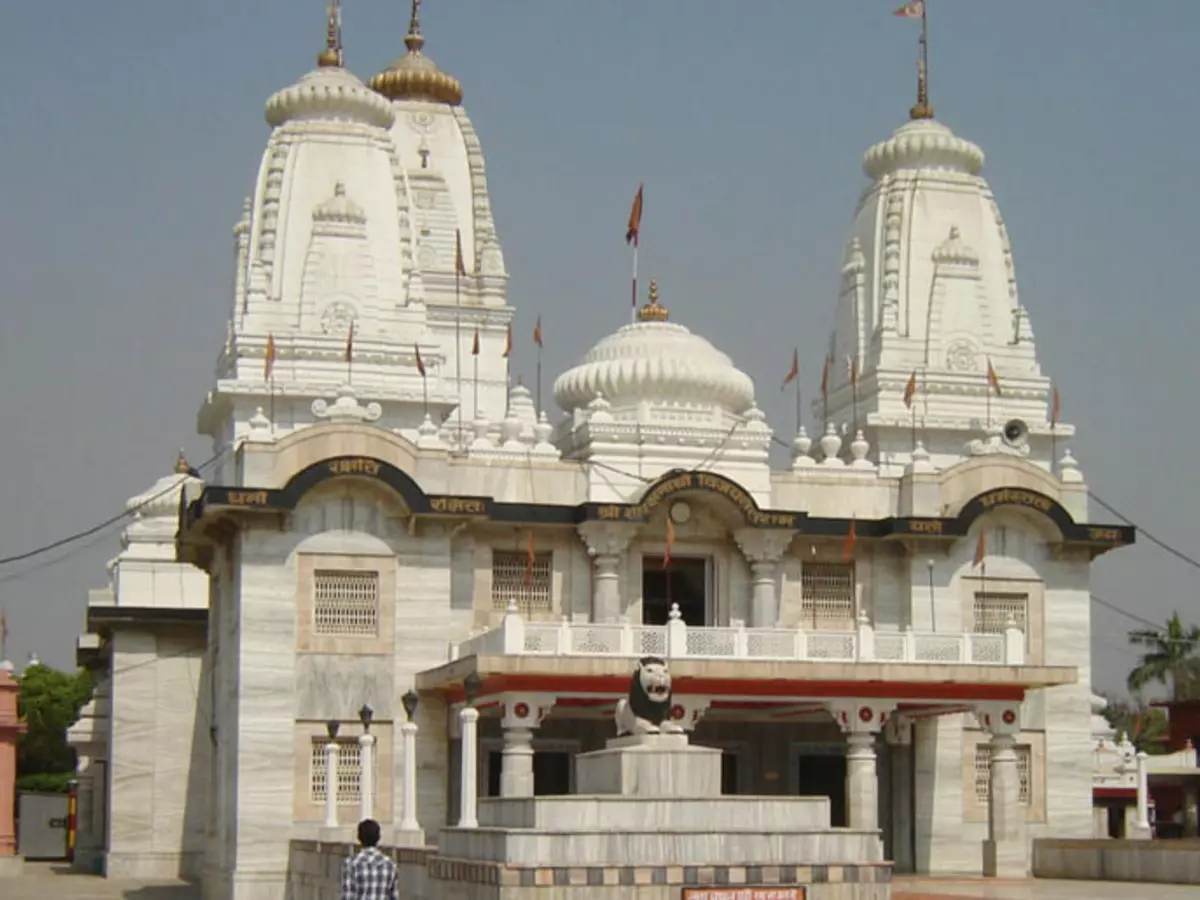Here's What You Need To Know About The Gorakhnath Math, The One Headed By UP CM Yogi Adityanath
The Gorakhnath Math in Gorakhpur traces its origin to 11th-century monk Guru Gorakshnath a yogi of the Nath Sampradaya - a Shaivite tradition within Hinduism The Naths attribute their origin to Dattatreya the little known single embodiment of the trinity of Brahma Vishnu Mahesh. In mythological terms GorakShnath's following was akin to Lord Shivas baraat that included every living being.

The Gorakhnath Math in Gorakhpur traces its origin to 11th-century monk, Guru Gorakshnath, a yogi of the Nath Sampradaya - a Shaivite tradition within Hinduism. The Naths, in turn, attribute their origin to Dattatreya, the little known single embodiment of the trinity of Brahma, Vishnu, Mahesh.

PTI
Interestingly, Dattatreya and his followers were believed to inhabit the Girnar forest in modern-day Gujarat. Among Dattatreya's disciples was Matsayendranath, the preceptor of Gorakshnath - the latter's revolutionary contribution to his times was simplifying the Upanishadic teachings in argot. He gave the Shabar Mantra - a pledge to Lord Shiva -- to the common people, making no distinction of their caste or communal identity. In mythological terms, Gorakshnath's following was akin to Lord Shiva's baraat that included every living being.
ALSO READ: Yogi Adityanath¡¯s Declares That Public Order Should Not Be Disturbed In The Name Of Celebrations
In time, the Gorakshnath (lit. protector of the cow) Shaktipeeth emerged as an egalitarian construct where, until this day, the festival of Makar Sankranti is observed with the distribution of khichdi to people of all castes, religions and faiths. It's a centuries-old great tradition.

PTI
Among the followers of Gorakshnath were the Gorkhas of Nepal, known for their military valour. Indeed, Gorakshnath was himself a martial ascetic, although he or his group wasn't part of Adi Shankaracharya's Akharas - or armed monasteries for religious renunciates. In more recent times, Gorakshnath's followers have become part of the Juna (ancient) Akhara.
As with most Sanatan saints, there are both historical and hagiographical accounts of Gorakshnath's existence. While the historical accounts locate him as a reformer who gave the masses access to Vedic and Upanishadic teachings, the celebratory accounts hold Gorakshnath as a 'siddha'. The Upanishads describe siddhas as beings that have progressed from a jivanmukta state to paramukta state - supremely free.
With full power over death, when siddhas who have become paramukta, attain physical form for a special purpose, they are known as an avatar. In the popular belief, Guru Gorakshnath was an avatar of Lord Shiva.
ALSO READ: Yogi Adityanath 'Openly Asked For 2 Deputy Chief Ministers,' Reveals Union Minister Venkaiah Naidu

PTI
Today's Gorakhnath Math in Gorakhpur is a religious and political institution that runs two temples, one in Nepal in Gorkha district, and the other south of Gorakhpur that's said to contain the Samadhi - a yogi's final resting place -- of Guru Gorakshnath.
These two temples are thronged by devotees in tens of thousands on Makar Sankranti; not so long back, the Nepalese royals were known to occasionally visit one of these temples during the end-winter festival.
Because the monastic order, according to the principles of Gorakshnath, does not follow caste rules as other Hindu religious denominations do, non-Brahmins have served as its temple priests. The current Mahant or chief priest Yogi Aditya Nath is a Thakur.
The Gorakhnath Math has been a busy hub of political activities for decades. Mahant Digvijay Nath was a member of the Congress in 1921. He was arrested for "actively participating" in the Chauri Chaura incident in which protesters clashed with the police. The subsequent violence led to the deaths of three civilians and 23 policemen, a turn of events that forced Mahatma Gandhi to call off his non-cooperation movement.
ALSO READ: Here's How Ajay Singh Bisht Became Gorakhpur's Yogi Adityanath And UP's New Chief Minister!

PTI
After independence, Digvijay Nath was arrested for his incendiary speeches against Gandhi before his assassination and was jailed for nine months. He later led the Ram Janmabhoomi movement of 1949, organising a nine-day recitation of Ramcharit Manas, at the end of which idols of Ram and Sita were placed inside the Babri Masjid.
The Mahants of Gorakhnath Math are known as kanphata yogis - they conduct 'cheera' or cut open the earlobes as a reminder to listen - not to the outside world, but only to their inner voice, or the voice of conscience. The still small voice that stops one from doing anything that leads to the accrual of bad karma.
